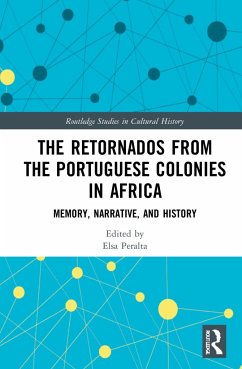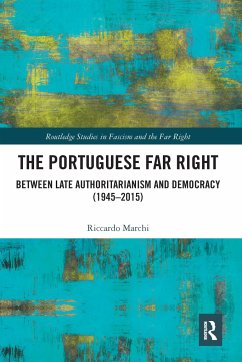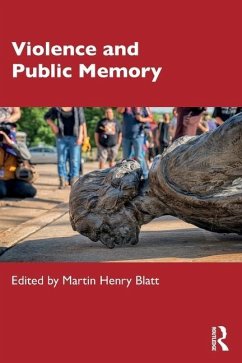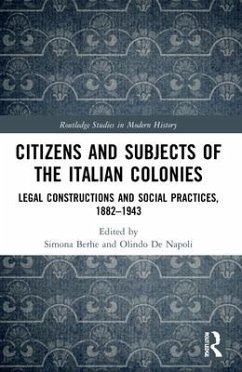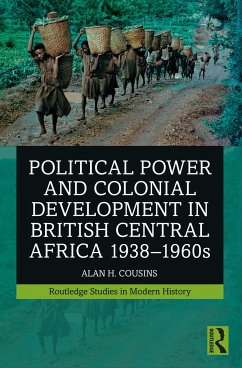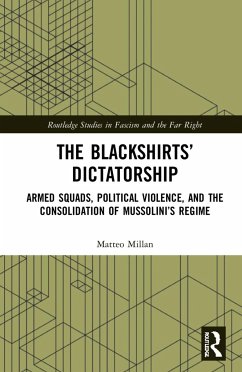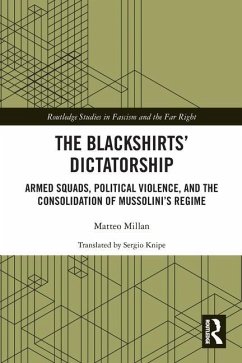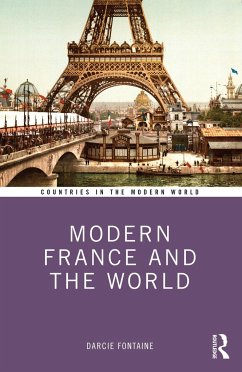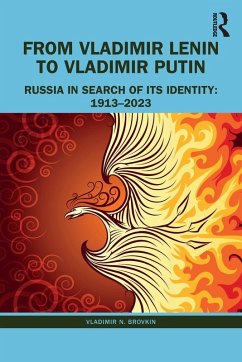
The Retornados from the Portuguese Colonies in Africa
Memory, Narrative, and History
Herausgegeben: Peralta, Elsa
Versandkostenfrei!
Versandfertig in 6-10 Tagen
43,99 €
inkl. MwSt.

PAYBACK Punkte
22 °P sammeln!
Placed in the wider scope of post-war European decolonisation migrations, The Retornados from the Portuguese Colonies in Africa looks at the "Return" of the Portuguese nationals living in the African colonies when they became independent.Using an interdisciplinary research agenda, the book presents a collection of research essays written by experts in the fields of anthropology, history, literature and the arts, that look at a wide range of memory narratives through which the Return-as well as the experiences of war, violence, loss and trauma-have been expressed, contested and internalised in ...
Placed in the wider scope of post-war European decolonisation migrations, The Retornados from the Portuguese Colonies in Africa looks at the "Return" of the Portuguese nationals living in the African colonies when they became independent.
Using an interdisciplinary research agenda, the book presents a collection of research essays written by experts in the fields of anthropology, history, literature and the arts, that look at a wide range of memory narratives through which the Return-as well as the experiences of war, violence, loss and trauma-have been expressed, contested and internalised in the social realm. These narratives include testimonial accounts from the so-called retornados from Africa and their descendants, as well as works of fiction and public memory-novels, television series, artworks, films or social media-that have come to mediate the public understanding of this past. Through the dialogue between these different narrative modes, this book intends toexplore the interplay between official memory, the lived experience and fiction, thus contributing to build an empirical basis to critically discuss the memory of the end of the Portuguese empire within postcolonial Europe.
This book will be of great interest to postgraduates, researchers and academics, most notably the ones working in the fields of postcolonial studies, cultural studies and memory studies.
Using an interdisciplinary research agenda, the book presents a collection of research essays written by experts in the fields of anthropology, history, literature and the arts, that look at a wide range of memory narratives through which the Return-as well as the experiences of war, violence, loss and trauma-have been expressed, contested and internalised in the social realm. These narratives include testimonial accounts from the so-called retornados from Africa and their descendants, as well as works of fiction and public memory-novels, television series, artworks, films or social media-that have come to mediate the public understanding of this past. Through the dialogue between these different narrative modes, this book intends toexplore the interplay between official memory, the lived experience and fiction, thus contributing to build an empirical basis to critically discuss the memory of the end of the Portuguese empire within postcolonial Europe.
This book will be of great interest to postgraduates, researchers and academics, most notably the ones working in the fields of postcolonial studies, cultural studies and memory studies.





